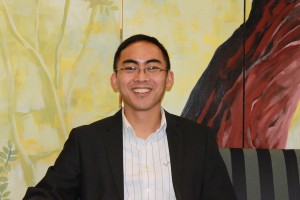非常抱歉,
你要访问的页面不存在,
非常抱歉,
你要访问的页面不存在,
非常抱歉,
你要访问的页面不存在,
验证码:

职称:Assistant Professor of Psychology
所属学校:Wake Forest University
所属院系:Department of Psychology
所属专业:Psychology, General
联系方式:(336) 758-7323
My research examines the effortful mental processes that seem to separate humans from other animals: resisting temptations and impulses, reasoning and decision making, thinking about and simulating non-present events, and making plans for the future. I examine the reliance of these processes on limited attention and energy. I also examine how these processes function and how they serve people’s goals and motives. Toward a theory of the human consciousness. One goal of my work is to uncover how conscious thought contributes to human functioning in light of its apparent limitations. Recent research has concluded that the unconscious mind is capable of guiding a wide range of behaviors, with the implication that the conscious thought is not needed for many of the processes that were once attributed to it, including action control and decision making. Some have wondered openly whether conscious thought processes play any helpful role at all. My colleagues and I have argued therefore that conscious thought is not for the direct control of action. We propose instead that its major purpose is to simulate events away from the here and now and that its influence on behavior is mostly indirect, as when a person makes a plan to engage in some later behavior and thus becomes more likely to execute it. We suggest moreover that conscious processes are crucial for enabling interaction with society and culture. Much of my research tests these ideas.
My research examines the effortful mental processes that seem to separate humans from other animals: resisting temptations and impulses, reasoning and decision making, thinking about and simulating non-present events, and making plans for the future. I examine the reliance of these processes on limited attention and energy. I also examine how these processes function and how they serve people’s goals and motives. Toward a theory of the human consciousness. One goal of my work is to uncover how conscious thought contributes to human functioning in light of its apparent limitations. Recent research has concluded that the unconscious mind is capable of guiding a wide range of behaviors, with the implication that the conscious thought is not needed for many of the processes that were once attributed to it, including action control and decision making. Some have wondered openly whether conscious thought processes play any helpful role at all. My colleagues and I have argued therefore that conscious thought is not for the direct control of action. We propose instead that its major purpose is to simulate events away from the here and now and that its influence on behavior is mostly indirect, as when a person makes a plan to engage in some later behavior and thus becomes more likely to execute it. We suggest moreover that conscious processes are crucial for enabling interaction with society and culture. Much of my research tests these ideas.